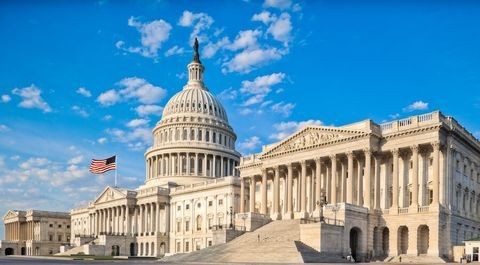Pre-dispute Agreements to Arbitrate Sexual Harassment and Sexual Assault Claims Will Be Voidable Pursuant to Federal Legislation
Client Alert | 1 min read | 03.02.22
On February 10, 2022, Congress passed H.R. 4445, titled the “Ending Forced Arbitration of Sexual Assault and Sexual Harassment Act of 2021.” The legislation would amend the Federal Arbitration Act (FAA) to render pre-dispute employment arbitration agreements voidable at the election of the employee for all sexual harassment and sexual assault claims. Employees will still be permitted to choose to arbitrate these claims. The legislation would also render pre-dispute employee waivers of the right to bring such claims jointly or on a class basis voidable.
Courts—not arbitrators—decide under federal law whether a claim constitutes sexual harassment or sexual assault subject to H.R. 4445, even if the arbitration agreement includes a provision delegating these decisions to the arbitrator. The law will apply to any sexual harassment or sexual assault claim that arises on or after its date of enactment.
While H.R. 4445 currently awaits President Biden’s signature, there is little doubt that he will sign it. On February 1, 2022, President Biden issued a Statement of Administration Policy encouraging the passage of the bill. In anticipation of the enactment of this law, employers should review and evaluate their current policies concerning the enforcement of employment arbitration agreements to make sure such agreements are not enforced with respect to claims exempt from mandatory arbitration under federal law. Additionally, for new employee arbitration agreements, employers should consider adding a specific carve-out for sexual harassment and sexual assault claims.
Contacts
Insights
Client Alert | 2 min read | 12.29.25
FYI – GAO Finds Key Person “Available” Despite Accepting Employment with a Different Company
GAO’s key personnel rule is well-known—and often a source of frustration— amongst government contractors. Proposed key personnel who become “unavailable” prior to contract award—especially where they have accepted employment with a different company—may doom an offeror’s proposal by rendering it noncompliant with solicitation requirements. But GAO’s recent decision in FYI – For Your Information, Inc., B-423774, B-423774.2 (Dec. 19, 2025) provides some potential relief from that rule.
Client Alert | 4 min read | 12.29.25
More Than Math: How Desjardins Recognizes AI Innovations as Patent-Eligible Technology
Client Alert | 10 min read | 12.24.25
Client Alert | 3 min read | 12.24.25
Keeping it Real: FTC Targets Fake Reviews in First Consumer Review Rule







